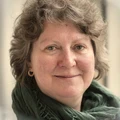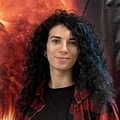President: Emilia Kilpua
(Emailst@egu.eu)
Deputy President: Alexis Rouillard
(Email)
ECS Representative: Liliana Macotela
(Emailecs-st@egu.eu)
The Division on Solar-Terrestrial Sciences (ST) considers all aspects of solar and heliospheric physics, specifically the solar-terrestrial connection. It covers the physical processes occurring on the Sun, in the solar wind, as well as in Earth’s magnetosphere and ionosphere. Solar activity (e.g. coronal mass ejections, solar flares, solar energetic particle events) and the response of the near-Earth space environment to these solar phenomena are studied on a wide-range of temporal and spatial scales. Data analysis and interpretation of space-borne and ground-based data, as well as theoretical studies and different modelling techniques are used to better our understanding of how our local star defines the neighbourhood that we live in.
Latest posts from the ST blog

Impact of upper atmosphere and ionosphere associated with an extremely explosive eruption of the Tonga volcano
1. Introduction Severe natural phenomena of geophysical, hydrological, and meteorological origins cause natural hazards that negatively impact human activity or the environment. Many people living on the earth suffer from natural hazards every year. Although we can predict some natural hazards (e.g., typhoons) in near real-time, forecasts of the geophysical natural hazards such as large earthquakes, volcanic eruptions, and tsunamis are challenging issues. Therefore, we have to rapidly and timely observe the key signals of natural geophysical hazards to reduce …
Read more

Newly released: Aurora Handbook and Field Guide for citizen science studies in view of the upcoming SolarMaX campaign
Given the recent surge in solar and geomagnetic activity, spectacular auroral displays have been visible down to the mid-latitudes several times since the beginning of 2024. But it is not always so easy to know when to go out, where to look, and how to take good pictures of the aurora. And what if the observations collected by seasoned and first-time aurora chasers could help in advancing the science? The ARCTICS (Auroral Research Coordination: Towards Internationalised Citizen Science) working group, …
Read more
ST-ECS Networking Campfire – How to convene a scientific session
Convening a session at academic conferences is no doubt time-consuming, but they are also the primary catalysts for establishing a research network and significantly boosting your academic profile. Particularly for Early Career Scientists (ECS), the idea of convening a session can be fearful and many worry that they don’t know how to do it or whether they can wrap up the session smoothly. The ECS team of the Solar-Terrestrial (ST) division of the European Geophysical Union (EGU) is organizing a …
Read more
Recent awardees

The 2024 Hannes Alfvén Medal is awarded to
Sandra Catherine Chapman for her pioneering work and leadership in advancing our understanding of space plasma physics in the solar system and beyond.
Read more

- 2024
- Division Outstanding Early Career Scientist Award
The 2024 Division Outstanding Early Career Scientist Award is awarded to
Erika Palmerio for outstanding research in analysing complex solar transients and their space weather effects.
Read more

- 2024
- Outstanding Student and PhD candidate Presentation (OSPP) Award
The 2024 Outstanding Student and PhD candidate Presentation (OSPP) Award is awarded to
Leonard Schulz Capabilities of the wave telescope for multi-scale spacecraft configurations using a Vlasiator simulation
Read more
Current issue of the EGU newsletter
In our January issue we take a look at the range of ways that geochemistry, geophysics, mineralogy, petrology and other fundamental geoscience researchers can move their careers in unexpected directions, and learn about how an interdisciplinary perspective took outgoing ERE Division President Viktor Bruckman from forestry to policy!
EGU's Simon Clark is here to help you get started on making personal changes in 2025, in a way that is sustainable, and don't forget to have your say on how we run the Early Career Scientist activities, with the 2025 ECS Survey.
If you need financial support to attend EGU25 due to care-giving responsibilities, a disability, career status or another reason, apply for our new EDI Participation Support by 23 February 2025. The EGU25 Photo Competition is open until 31 March, submit your image to win free registration to EGU26! All this and much more in this month's Loupe!
Read more





